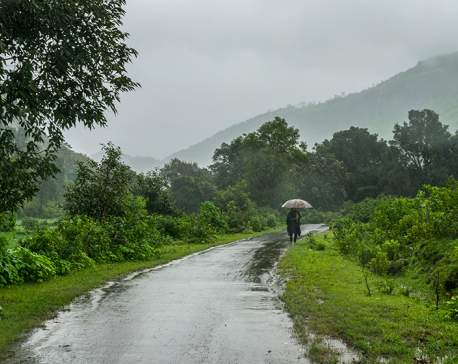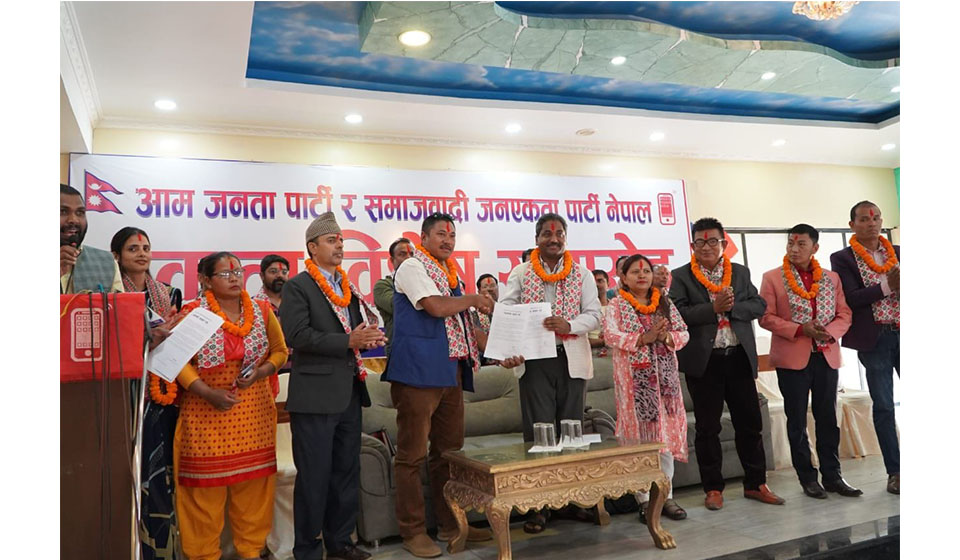
OR
Editorial
Severe water crisis in Chure area calls for urgent action
Published On: June 15, 2023 07:30 AM NPT By: Republica | @RepublicaNepal

There have been alarming reports of parched settlements on the southern slopes of the Chure hills across Madhesh. Once known for their perennial water sources, numerous communities in the Chure region are now grappling with a severe water crisis, especially during the summer season. Dhangadhimai-13 Bhorleni in Siraha is one of the settlements severely affected by the acute water shortage. Gyanendra Ram, a resident, highlights the alarming situation, noting that the water levels have significantly decreased due to the uncontrolled exploitation of the Chure hills and protected areas. Depleted wells and the suspension of deep boring for water supply have left the residents in distress. If the current rate of exploitation continues, the water crisis in the area is poised to worsen even further.
Villages such as Mahulia, Mushharniya, Mahuwa Danda, Tenatol, Bhorleni, Khajanpuriatol, Khutti, Madyan, and Sarre in Siraha district are also bearing the brunt of the problem, with their wells running dry. Residents are resorting to extreme measures, such as connecting motors from neighboring wells, but even these sources are rapidly depleting. The situation is dire, and without sufficient rainfall, the water supply problem is set to get worse. The problem of water scarcity is not just limited to Siraha; all the Madhesh districts connected to the Chure region are facing severe drinking water problems. The root cause of this water crisis lies in the unregulated and indiscriminate mining of minerals, deforestation, and uncontrolled exploitation of rivers and stone quarrying in the Chure region. They have caused a rapid decline in water sources, leaving communities desperate for this basic necessity of life. It is crucial that the authorities take proactive measures to save the Chure hills and address the pressing water crisis before it worsens.
Given the gravity of this water crisis, immediate action is imperative. The authorities must prioritize the protection of the Chure hills and regulate the exploitation of rivers. Uncontrolled mining of minerals, deforestation, and stone quarrying activities must be halted to allow for the recovery of the ecosystem. Environmental and watershed experts, including Dr Vijaya Kumar Singh, emphasize that conservation efforts in the Chure region and the protection of rivers are crucial to alleviate the water crisis. Neglecting this responsibility will only lead to further desperation for the people residing in the Chure foothills and Madhesh as a whole. Moreover, the preservation of the Chure hills is not only vital for addressing the water crisis but also for the overall well-being of the region. The Chure region serves as a natural barrier against floods, retains groundwater, and supports biodiversity. The fertile lands of Madhesh districts, which are often known as the bread basket of Nepal, are at stake if immediate measures are not taken to protect this invaluable resource.
To control the exploitation of the Chure hills and rivers, stricter regulations must be enforced. Establishing effective monitoring systems to ensure compliance with environmental standards is crucial. It is equally important to launch public awareness campaigns to educate local communities about the importance of preserving the Chure hills and the negative consequences of unregulated activities. Furthermore, collaboration among different stakeholders is vital for finding long-term solutions. Government bodies, environmental organizations, local communities, and experts must work together to develop sustainable strategies for the protection and restoration of the Chure region. The government must prioritize the conservation of Chure, allocating adequate funding for conservation projects, research, and the implementation of environmental safeguards. It is imperative that the authorities understand the severity of the situation and act swiftly to save the Chure hills and address the water crisis. The well-being and livelihoods of countless people are at stake, and failure to take proactive measures will lead to irreversible consequences. As a newspaper, we urge the government to prioritize the preservation of this vital natural resource and work towards a sustainable future for the Chure region and its inhabitants.
You May Like This

Drinking water facility elates Gulmi folks
GULMI, Oct 15: Local people of Dhurkot Rural Municipality in Gulmi district have been elated after receiving the water at... Read More...

Monsoon active in four provinces
KATHMANDU, June 11: This year's monsoon system has entered four provinces of the country. According to the Department of Hydrology... Read More...

Everest Bank continues support for Teach for Nepal
KATHMANDU, Aug 5: Everest Bank Ltd has handed over a check for Rs 500,000 as a continuation of its support... Read More...




Just In
- Sunkoshi-Marin Diversion Project’s tunnel construction nears completion, breakthrough scheduled for May 8
- Govt tightens security arrangement for Third Investment Summit 2024
- Pesticide residue found in vegetables in Nepalgunj
- Aam Janata Party and Samajwadi Jana Ekata Party merge
- 1,600 participants confirmed for Nepal Investment Summit
- Ilam-2 by-elections held peacefully, vote count likely to start tonight
- NEA schedules five-day power cut across Kathmandu Valley for underground cable installation
- Hundreds of passengers including foreign tourists in distress as poor visibility halts flights to and from PRIA







-1200x560-wm_20240427144118.jpg)





Leave A Comment